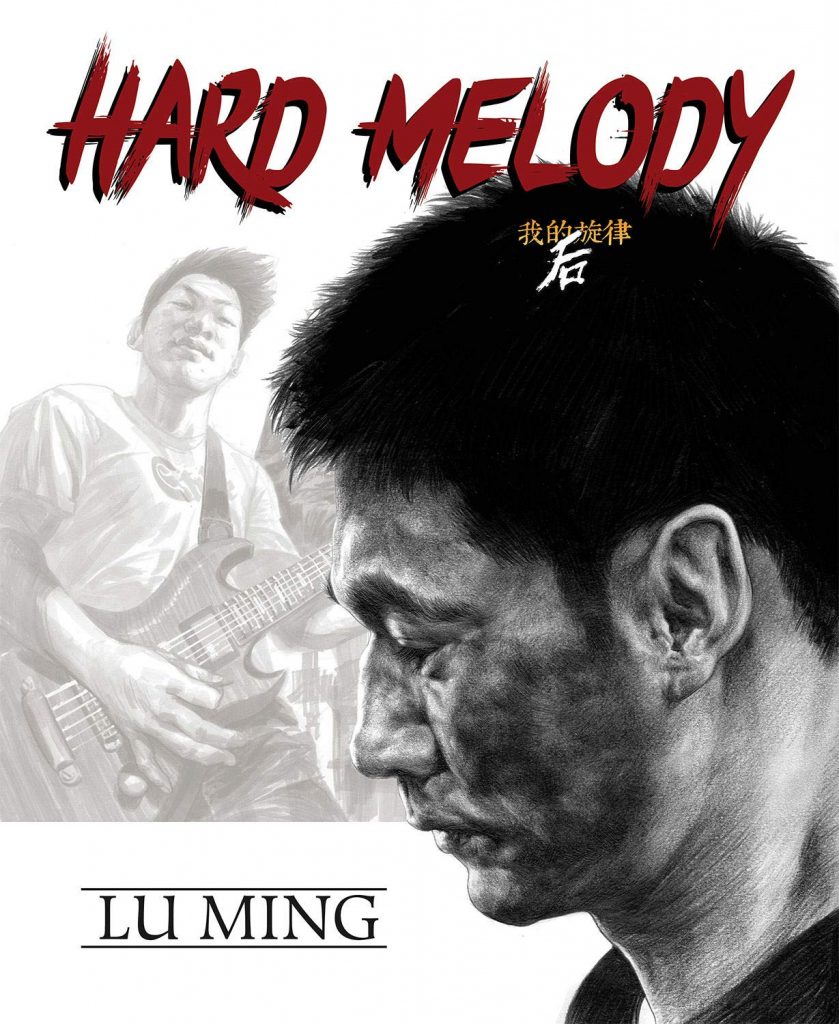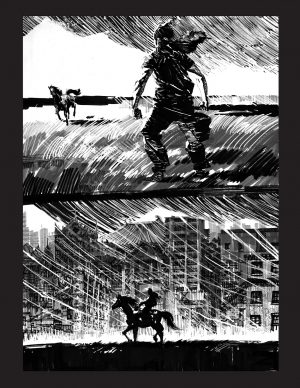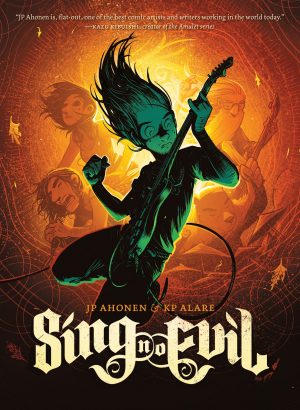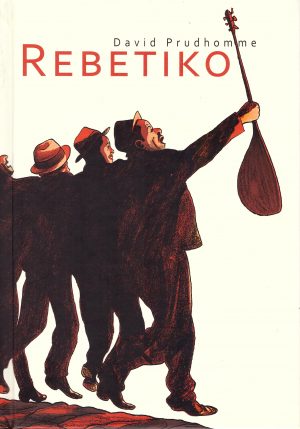Review by Frank Plowright
As the millennium turns Chinese rock band Deep Blue Sky are flying high playing festivals, yet the band members still haven’t left school. However, nothing lasts forever, and a couple of years later the band have gone their separate ways. Ten years after that all three find themselves back in Beijing.
It’s almost the case that a blind person could see what a phenomenal artist Mu Ling is. He has real gift for portraiture, with just enough minor flaws to show the art has been created from reference rather than shopped in and modified. Naturally enough, he sees comics as a series of individual images rather than a form of continuity, and as such and looking at his sometimes impressionistic brush lines it’s not too great a leap to compare him stylistically to Sergio Toppi, although Ling’s cross-hatching is altogether more traditional. The shots of the band playing are really striking, not using the usual viewpoints and he brings an emotional resonance to their performances.
With the pages looking so good the hope is that the writing is equally involving, and sadly that isn’t the case. Ling begins with the band at the height of their powers, thrilling an audience, but they’re young enough to have to consider parental demands, and because the musicians are not fulfilled each drifts into a life of disappointment. When they meet again they share their stories, and playing to the strengths of his art, Ling uses sometimes bloated narrative captions as they explain their missing years. The most tarnished of them is drummer Liu Hai, who’s spent several years in the Chinese army’s most desolate outposts, and the violence has never left him.
The most interesting part is toward the end when Ling moves from recollections to bassist Mu Jiadong’s present day problems. While the army memories have touched on one aspect of modern China, it’s brought into stark reality, and the freedom of rock music pales into nothing when set against the entirety of state control. The ending is dramatic and consistent with what Ling’s established, but what lingers is the art, not the plot.





